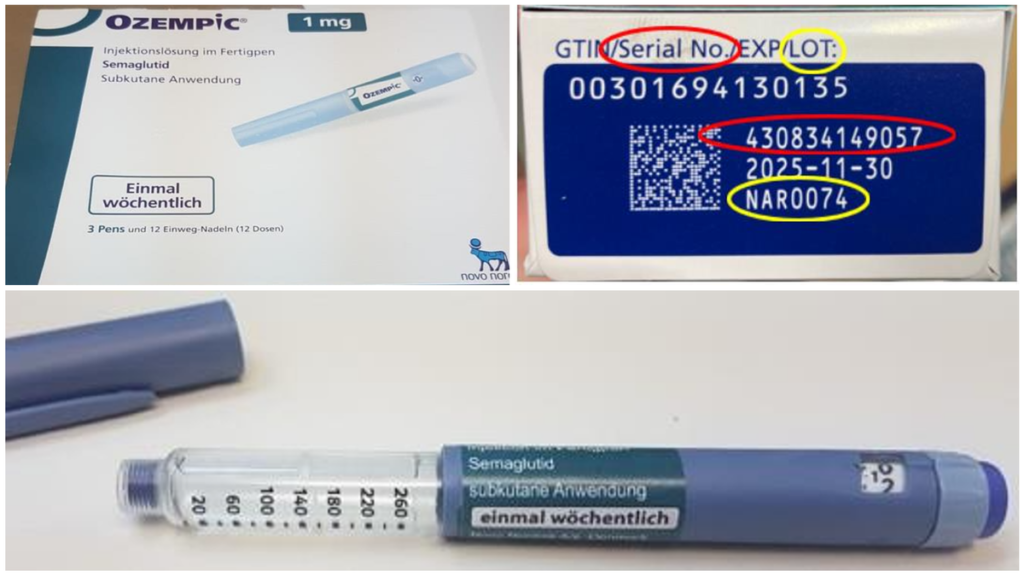The World Health Organization warns the public to stay away from counterfeit Ozempic or “fauxzempic”. The agency recently received reports that drugs in at least three countries, including the United States, were being counterfeited to look like diabetes medications and the off-label weight loss drug Ozempic.
The World Health Organization has released Medical Product Alert Wednesday’s news about counterfeit drugs was followed by an announcement Thursday. The alert involves three batches of counterfeit products discovered in three countries. Two batches were discovered in Brazil and the United Kingdom last October, while a third batch was discovered in the United States in December. All three were reportedly found to be fraudulent by Novo Nordisk, the manufacturer of Ozempic.
In one batch of product, a fake batch number was placed on the label. In another batch, the combination of batch and serial numbers did not match official records. Third, the batch number was accurate, but the actual product was counterfeit.
Yukiko Nakatani, WHO Assistant Director-General for Access to Medicines and Healthcare Products, said in a report: “WHO advises healthcare professionals, regulatory agencies and the public to be alert to these falsified batches of medicines. ” statement From agency. “We call on stakeholders to stop using suspected drugs and report them to the relevant authorities.”
The active ingredient in Ozempic is semaglutide, which is part of the incretin class of drugs. Incretins interact with or mimic hormones that regulate functions such as hunger and blood sugar, and semaglutide is a GLP-1 mimic. In clinical trials, semaglutide and other novel incretins have confirmed Treating obesity is more effective than diet and exercise alone. Ozempic is only approved to treat type 2 diabetes, but another higher-dose version of semaglutide was approved in 2021 under the name Wegovy to treat obesity. Weight Loss Drugs.
Unfortunately, demand for these drugs often exceeds supply. These shortages, combined with high sticker prices ($1,000+ per month) and low insurance coverage, have resulted in Gray and black markets for drugs.
Some people get their GLP-1 from compounding pharmacies, which are often used to make custom medications for patients with special needs, such as ones that don’t contain certain allergens. These pharmacies have legitimate uses and are supposed to source active ingredients from regulated facilities, but many places selling semaglutide do so illegally. according to National Association of Boards of Pharmacy. Regulators are also beginning to detect counterfeiting of Ozempic. In at least some cases, the product actually contains insulin and the user has been Hospitalization Hypoglycemia and seizures due to overdose.
While it’s true that these compounded and counterfeit drugs are much cheaper than the official versions, at least without insurance, taking them is riskier due to a lack of regulation and oversight. The World Health Organization recommends that people who need these medications get them from a licensed doctor and avoid buying them from unfamiliar places, especially online pharmacies.
“The use of counterfeit OZEMPIC may result in ineffective patient treatment due to incorrect dosage, contamination with harmful substances, or the use of unknown or substitute ingredients. Because subcutaneous injection can be life-threatening, it may pose other serious risks to health,” the World Health Organization warns pointed out in.

